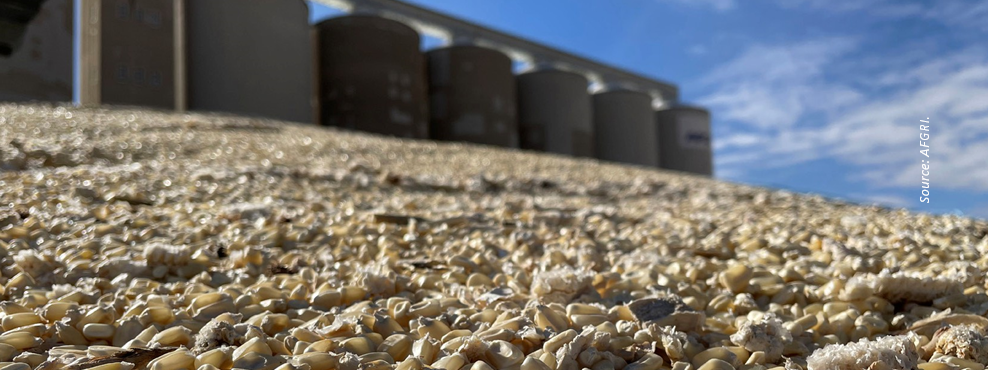
Articles & Insights
Future-proofing food security

According to an article by Wolfram Schlenker, a professor at Columbia University, and David Lobell of Stanford University, published in Environmental Research Letters, climate change could cause medium-term production declines in sub-Saharan Africa. The implications for this region, where agriculture accounts for 40% of the gross domestic product (GDP) in some countries, could be severe. Furthermore, agriculture is responsible for 80% of employment in some of these countries, making most of the population directly or indirectly dependent on agriculture for their survival.
South Africa makes a significant contribution to food security in sub-Saharan Africa through exports. Our country takes the lead in respect of production of grain and oilseeds. From May 2001 to August 2024, South Africa imported only ten million tonnes of maize, compared to total exports of maize and maize products of 47,6 million tonnes over the same period. Of this, a total of 3,4 million tonnes were exported to African countries. Thus, South Africa is increasingly taking the lead in promoting food security in sub-Saharan African countries.
Grain and oilseeds market
The production of maize surpluses available for export has surged dramatically over the past decade, with exports growing by an astronomical 24,4% per year. On the other hand, the domestic consumption of maize, both as a staple food and animal feed, has stagnated at 1,5% per year. This rate mirrors the population growth over the same period, which also increased by 1,5% per annum. In other words, the growth in domestic maize consumption correlates with the average population growth.
The past ten years South Africa has exported five times more maize than it had to import. Remarkably, we only imported more maize than we exported in four out of 23 marketing years since 2001 (2006/07, 2007/08, 2015/16, 2016/17). This is a phenomenal achievement.
In the last 30 years, South Africa exported more maize than it imported in a period of only five years. Consequently, we are largely self-sufficient and increasingly a net exporter despite the risks posed by climate change. With average long-term rainfall of 480mm per year (global average rainfall is double that at 980mm per year) we produce enough food to meet local consumption at export price levels.
Click here to read full article by Wessel Lemmer, general manager, Agbiz Grain for the Agbiz Grain Quarterly November 2024 issue.
